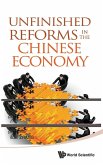Since 1993, Venezuela has joined the already long list of countries that include Value Added Tax (VAT) in their tax structure. As VAT is a tax on consumption, the tax burden falls more heavily on the lower income strata, and is therefore defined as a regressive tax. In order to mitigate the impact on the lower income strata, the tax has undergone several reforms since its inception, including changes to the list of exemptions and the tax rate. But these reforms have also been driven by political and economic reasons, mainly linked to the volatility of oil revenues. From the observation of the variables and facts, it is evident that in the modification of VAT rates, tax policy has been pro-cyclical, which is common behaviour in Latin American economies and other developing countries. In this context, three relevant questions arise: what is the distributive impact of VAT exemptions; what is the fiscal sacrifice that these exemptions represent for the state; and what is the opportunity cost of these resources?
Hinweis: Dieser Artikel kann nur an eine deutsche Lieferadresse ausgeliefert werden.
Hinweis: Dieser Artikel kann nur an eine deutsche Lieferadresse ausgeliefert werden.








